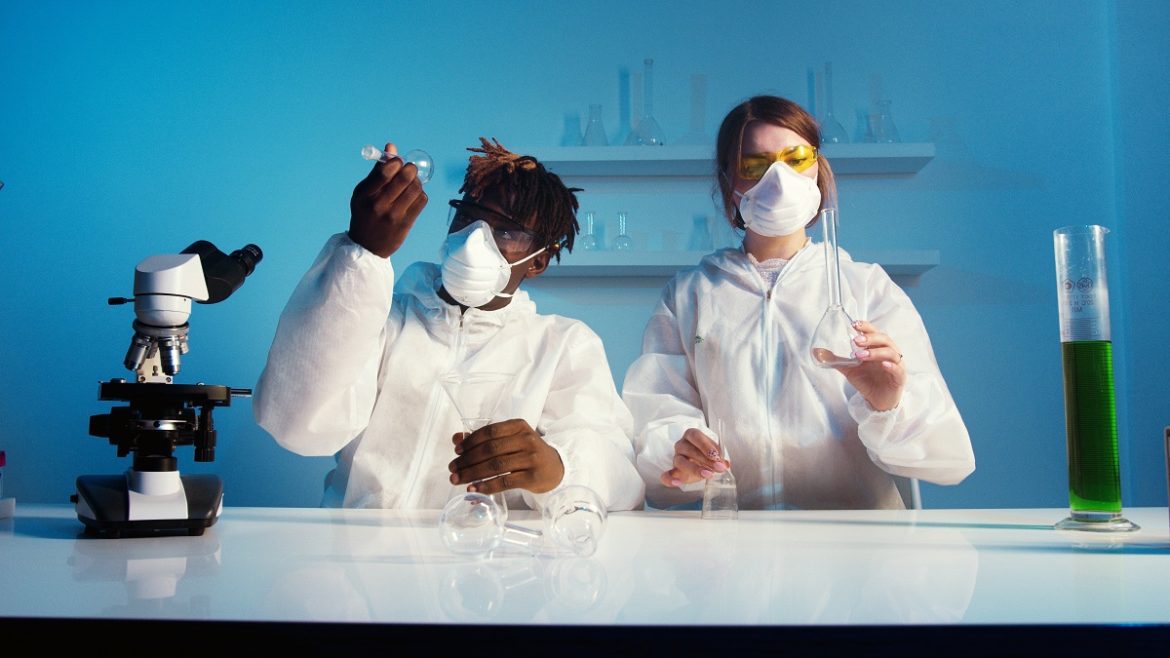Oddly enough, despite the fact that you can score top marks for a lab report essay on its own, you are judged just as much by your method and your results. You could write a perfectly good lab report, but if you are writing about flawed experiments and tainted results, then your professor may not appreciate it, and real-world academics will look down on you. Get your tests and your methods correct, and it becomes a lot easier to score highly for writing your lab report.
Write Your Introduction Last
Let us start with a less obvious tip. You need to write your introduction last. For some reason, students write stronger introductions when they write them last. Maybe it is because the students know what the conclusions already are, or maybe it is because the student has a keener grasp on the topic. No matter the reason, write your introduction last and it will be far more concise, meaningful and stronger.
The Most Basic Format That University Students Use
Your professor may have his or her own thoughts on your lab report’s format, and hopefully, he or she will give you a structure from which you may work. Nevertheless, the most common and basic structure is:
- Introduction
- Methods and Materials
- Results
- Discussion
IMRAD -Introduction, Method, Results and Discussion. Create a hypothesis, test it, figure out if your results support your hypothesis. That is all you need to do to create a lab report. You are documenting the process by introducing your hypothesis, testing it, showing the results and discussing or concluding upon them.
Introduction
Part of your introduction is supposed to sell your lab report to the reader. It is supposed to help the reader identify if your lab report is something that he or she is interested in, and then if the content is worth reading. You need to make it clear what your lab report is all about, and you need to make it clear what you have to offer. You also need to add a hypothesis, give your reasons for your research, and maybe link your lab report to previous research.
Method
Explain how you tested your hypothesis. You are probably going to have to justify your method in some way too. You need to prove that the results you got were not tainted and that your tests were fair and accurately carried out. Poor methodology leads to poor results to the point where you will score poorly no matter how good your lab report is.
Materials
Give details of all the things you did and all the things you used. This is necessary so that others may copy your tests to see if they get the same results. The more accurate you are about your method and your materials, then the more useful your lab report is to other people.
Results
How you present your results will probably depend upon what your professor asks for. You will have to start by giving your raw data. It needs to be uninterpreted and shouldn’t be visualized any more than it has to. Things such as a table are usually enough to present results. You may then have to process the information, interpret it, and visualize it with charts if your professor asks you to. Ask your professor if your results count as part of your lab report’s word count. They probably shouldn’t, but it is always best to ask.
Discussion/conclusion
Your discussion and/or conclusion section allows you to interpret the raw data that you have processed. It may offer more room to interpret your data, but it certainly gives you space to pull up a few conclusions. At some point, either after analysis, evaluation, and/or during the conclusion, you need to link your hypothesis to your test results. You need to make it clear if you got the results you expected as per your hypothesis, and you need to make it clear what your test results mean when your hypothesis is considered.
Plan Your Test Steps Carefully And Get Help
You are a student, which means you are supposed to be learning. Just because other classmates are not seeking help doesn’t mean they are better than anybody else; they will probably screw up harder and suffer the most as they try to catch up. Get help from books, online videos, professors and real scientists. Getting help is important when writing your lab report, but it is more important when you are conducting your lab tests. As it was mentioned in the introduction, it is a lot harder to get a good mark for your lab report if your lab tests are flawed and your results are tainted.
Also, don’t worry too much about getting your lab report 100% correct at first. You are going to get a lot of practice writing lab reports in both the classroom and out in the real world when you get a job. Wanting to improve yourself is a good thing, but don’t become overly stressed about creating the perfect lab report right away because you are going to write so many that you will eventually become an expert at writing them.

